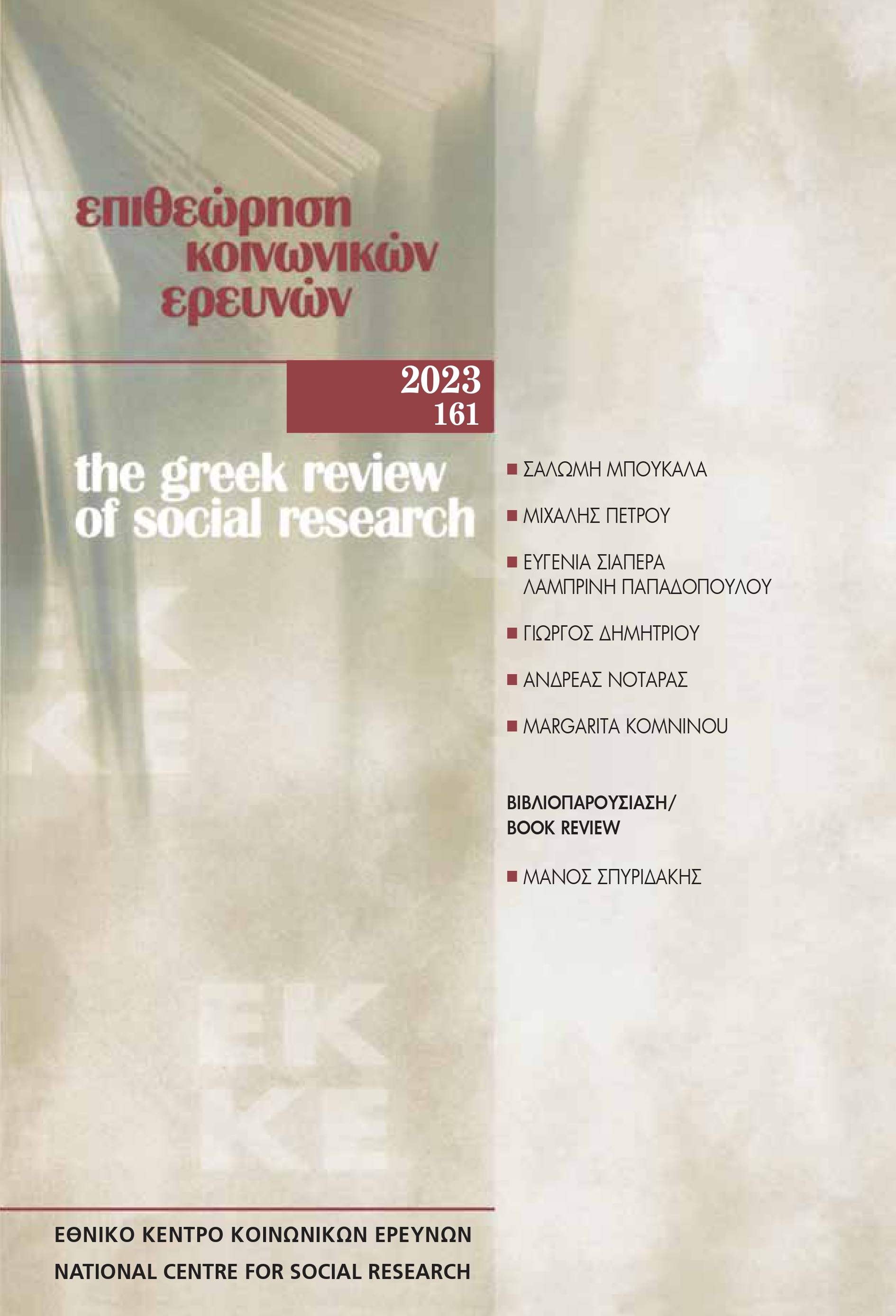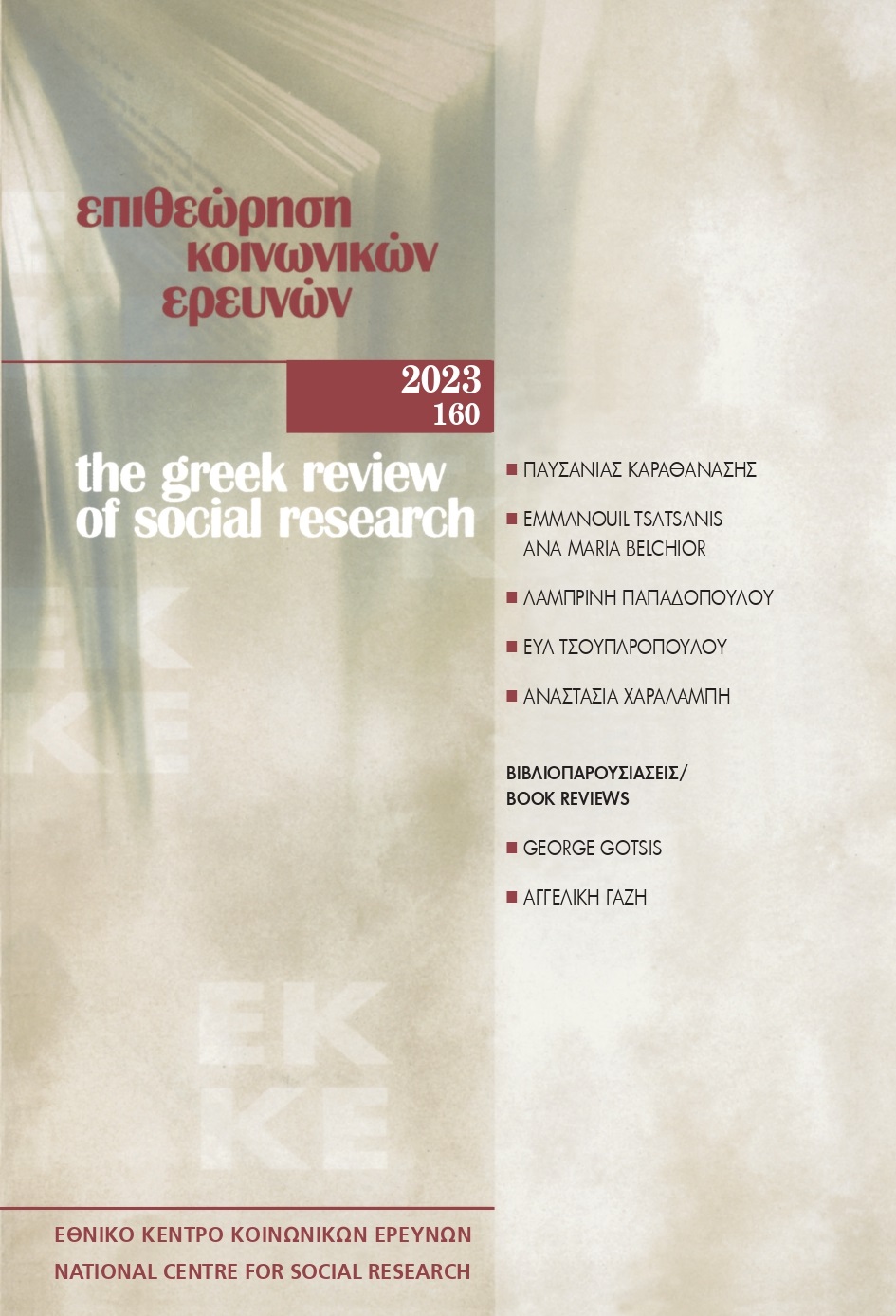The affective and political economy of hate journalism: Toxic masculinity, misogynism and homophobia in Greek extreme right-wing media

Abstract
This article focuses on the Greek far-right newspaper Makeleio and aims to record and analyze the way it produces and circulates negative emotions such as hate. We argue that Makeleio which constitutes a successful endeavor has managed to survive and even thrive in Greece’s media landscape by mirroring, reproducing, and reinforcing the misogynist and homophobic values of conservative Greece. It is no coincidence that this kind of journalism flourished during the crisis that hit severely Greece creating uncertainty as the new normal across all aspects of life. This context functioned as a catalyst leading to a wider use of emotions in journalistic practice as a means to address and manage the profound uncertainty. By practicing this kind of ‘hate journalism’, Makeleio creates a special relationship with its readers, who recognize their own language, thoughts, and moral values in its pages. Ultimately, Makeleio mobilizes hate towards women and homosexuals to attract its audience who in their turn support this kind of journalism by consuming it.
Article Details
- How to Cite
-
Siapera, E., & Papadopoulou, L. (2023). The affective and political economy of hate journalism: Toxic masculinity, misogynism and homophobia in Greek extreme right-wing media . The Greek Review of Social Research, 161, 73–93. https://doi.org/10.12681/grsr.35010
- Issue
- 2023: 161
- Section
- Articles

This work is licensed under a Creative Commons Attribution-NonCommercial 4.0 International License.
Authors who publish with this journal agree to the following terms:
- Authors retain copyright and grant the journal right of first publication with the work simultaneously licensed under a Creative Commons Attribution Non-Commercial License that allows others to share the work with an acknowledgement of the work's authorship and initial publication in this journal.
- Authors are able to enter into separate, additional contractual arrangements for the non-exclusive distribution of the journal's published version of the work (e.g. post it to an institutional repository or publish it in a book), with an acknowledgement of its initial publication in this journal.
- Authors are permitted and encouraged to post their work online (preferably in institutional repositories or on their website) prior to and during the submission process, as it can lead to productive exchanges, as well as earlier and greater citation of published work (See The Effect of Open Access).



